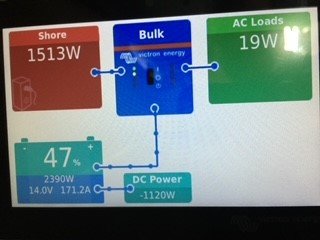Bongi
Veteran Member
- Joined
- Dec 6, 2021
- Messages
- 98
- Vessel Name
- Scatterlings
- Vessel Make
- Grand Banks 42C
We went end to end Victron Lithium (480 a/h) on our 89 Californian 48 CPMY last year and have absolutely loved it. Soon she will be on the market in Anacortes and I suddenly realized some may think LifePo lithiums are still a fire risk - and steer clear of the boat.
Have people gotten over this by now realizing LifePo is not the early generation lithium… or will most not even realize what they are looking at?
Have people gotten over this by now realizing LifePo is not the early generation lithium… or will most not even realize what they are looking at?





